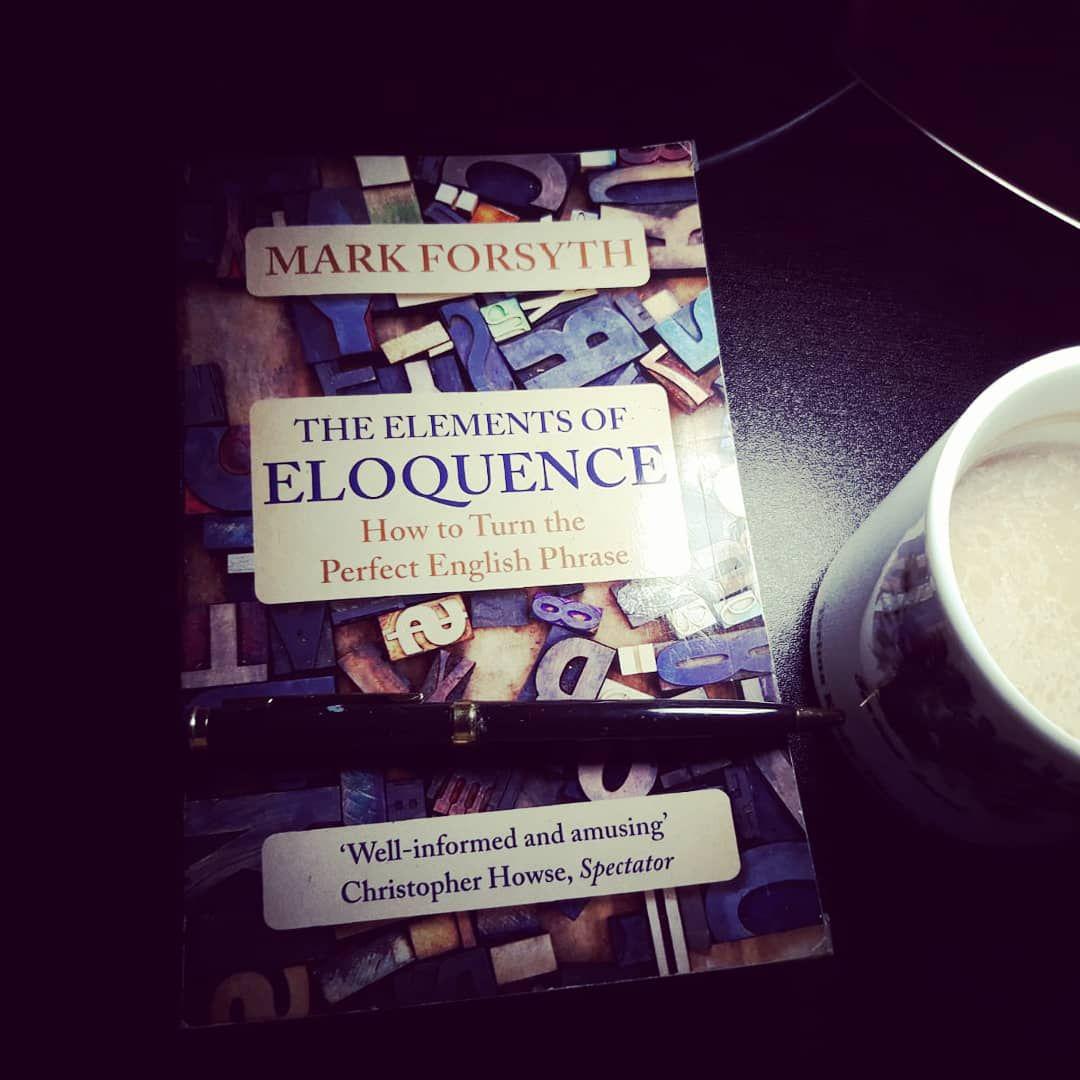|
Just finished reading this book yesterday, and I'm very happy. Sharing here my review from GoodReads:  The Elements of Eloquence by Mark Forsyth The Elements of Eloquence by Mark ForsythMy rating: 5 of 5 stars This is an entertaining little book filled with wisdom and amusing facts on rhetorical figures. Anyone who loves the English language, or the beauty of languages and beautiful writing for that matter, will definitely enjoy this little gem. It has 39 chapters, each dedicated to explaining a particular figure of rhetoric in the most illuminating and delightful manner. Reading it gives me the chance to revise more familiar rhetorical figures like alliteration, antithesis, assonance, anaphora, metonymy and synecdoche, personification, and hyperbole; but also less familiar ones (at least to me) like polyptoton, hyperbaton, hendiadys, catachresis, epizeuxis, zeugma, and scesis onomaton. To explain each rhetorical figure, Mark Forsyth draws examples from great writers, poets, playwrights, pop artists, rock and roll singers, movie actors and actresses, politicians, philosophers, and God (I mean the Bible). His writing is fun and engaging; it's hard for me to put the book down. The book claims to offer "tricks to make the most humdrum sentiments seem poetic or wise" (from the blurb on the back cover), and it doesn't disappoint. The blurb also says that the book will show how I can do the same - Forsyth concurs in the introduction part of the book thought-provokingly titled 'On Cooking Blindfolded': "Shakespeare got better because he learnt. Now some people will tell you that great writing cannot be learnt. Such people should be hit repeatedly on the nose until they promise not to talk nonsense any more" (p. 2). I'm still not better at writing after finishing the book, but I'll definitely never going to read any written sentence in any language in the same way ever again. This is a book that I would want to go back to often - to refer to, to learn from, to contemplate. I think if all writing teachers can just make the teaching of rhetorical elements as entertaining, anyone who wants to write beautifully can learn how to do so, if they want to. At the very least, understanding of rhetorical figures can certainly afford humans the chance to discover a more in-depth appreciation for literature and beautiful writings. In the penultimate section of the book, the 'Peroration', Forsyth reveals his hope for the book: to dispel "the bleak and imbecilic idea that the aim of writing is to express yourself clearly in plain, simple English using as few words as possible" (p. 201). And he goes on to say, "To write for mere utility is as foolish as to dress for mere utility" (ibid). (Can I show this to my academic journal editors? :P ) Without figures of rhetoric, "we would merely be us: eating, sleeping, manufacturing, and dying. With them everything can be glorious. For though we have nothing to say, we can at least say it well" (p. 202). I think that aptly recapitulates what The Elements of Eloquence is all about. View all my reviews
That's all for today. Till the next post!
-ccj, Duvanson, 3rd June 2021, 9.23am
0 Comments
Leave a Reply. |

 RSS Feed
RSS Feed